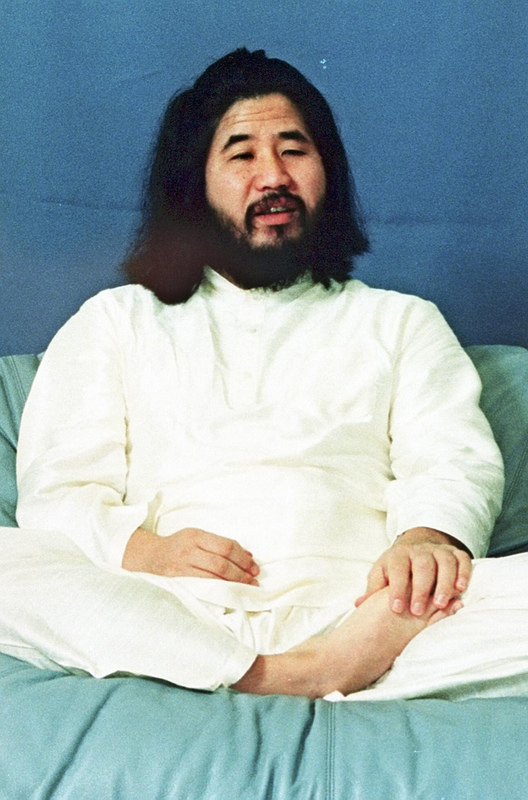
Chizuo Matsumoto, 63, the former leader of the now-defunct Aum Supreme Truth cult, never discussed what actually happened, even until the end of his life, although he repeatedly behaved strangely and made odd comments during his criminal trials.
At his first trial before the Tokyo District Court in April 1996, he called himself Shoko Asahara when asked his identity. Regarding his real name, he said, "I have abandoned that name."
When asked about the sarin gas attack on Tokyo's subway system during a trial in April 1997, he pleaded not guilty and assigned blame to his followers, saying, "I stopped my followers but lost [could not persuade them] in the end." He maintained his silence when questioned by prosecutors.
In November 1999, when he appeared in court as a witness in the trial of a former senior cult member, Matsumoto warned the former member, saying, "Don't talk too much."
He continued to behave oddly in his court appearances such as by suddenly screaming loudly. He was sentenced to death in February 2004.
In March 2006, the Tokyo High Court terminated Matsumoto's appeal proceedings as his counsel had failed to submit a statement explaining his reason for the appeal. His death sentence was subsequently upheld in September that year.
Afterward, Matsumoto continued not to speak, even during meetings with his lawyers and other visitors.
Members of the Human Rights Protection Committee of the Japan Federation of Bar Associations met Matsumoto for about 30 minutes in January 2007. His hair had been trimmed short and he had a pale complexion, and mostly remained silent aside from occasionally groaning "ooh" or "hee." He did not react when asked if he remembered the cult. However, he is said to have moved his hand a little when asked, "Are you afraid of the death sentence?"
Regarding a lawsuit filed by Matsumoto's fourth daughter to exclude her parents from her inheritance, the Tokyo Detention Center wrote on May 25, 2017, in response to a Yokohama Family Court inquiry, that Matsumoto had maintained his hearing and physical capabilities, and showed no clear signs of mental disorder.
According to lawyer Taro Takimoto, who represents the daughter, the letter also included information about his daily life in recent years such as how a detention center officer held his hand when he left his cell to exercise or bathe. However, he apparently refused to see lawyers or other people and would not leave the cell.
Read more from The Japan News at https://japannews.yomiuri.co.jp/







